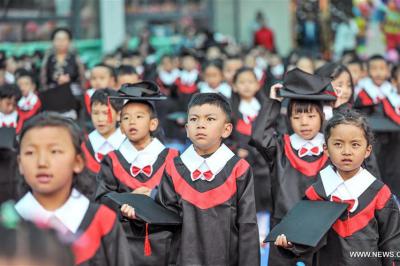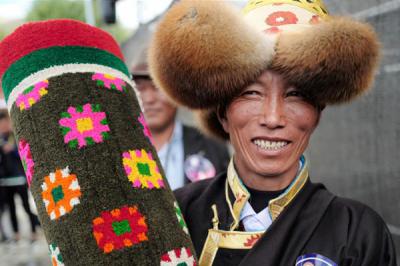| GENEVA, July 19, 2019 -- The UN Refugee Agency, UNHCR, said Thursday that despite record worldwide displacement and ongoing refugee influxes, some 10.5 million refugees got health care through public health programs last year.
The refugees received these through UNHCR and other partners last year, the agency said in its Annual Public Health Global Review, which it published on Thursday.
The report highlights health, nutrition, water, sanitation, and hygiene activities for refugees, asylum seekers, and affected host communities across 51 refugee-host countries.
"With the majority of refugees, 84 percent, hosted in developing regions where basic services are already strained, national health systems need more support than ever to ensure refugees and their local host communities can access life-saving and essential health care," said UNHCR's Assistant High Commissioner for Operations, George Okoth-Obbo.
The report shows that in the progress made in 2018, mortality rates among refugee children under the age of five, an important health impact indicator in emergencies, continue to decline.
"Over the course of the year, UNHCR public health teams and partners responded to various outbreaks ranging from diphtheria and suspected measles in Bangladesh, to cholera and viral haemorrhagic fever in Kenya and Uganda," said UNHCR.
Reported mortality rates of refugee children under five improved from an average of 0.4 per 1,000 every month in 2017 to 0.3 in 2018.
The rate is despite continued refugee influxes, including from Myanmar, South Sudan and the Democratic Republic of Congo into neighboring countries last year.
The report also highlights the significant progress made on the inclusion of refugees into national health systems.
It says some countries are also making notable efforts to expand opportunities to include refugees in health insurance schemes, and other social protection pillars.
In 37 host countries, most refugees can get vaccinations and treatment for tuberculosis, HIV, and malaria on an equal footing with nationals.
In 80 percent of countries where UNHCR supports health activities, 90 percent of refugee women delivered their babies in health facilities with skilled assistance.
This is the single most effective measure in reducing maternal and new-born mortality as well as stillbirth, said UNHCR.
|
- Home
- News Tibet |Exclusive |China |World |Other Tibetan-Inhabited Area |Tibet through the Eyes of Foreigners |Related News
- Documents White Papers |Others
- Photo Politics |Economy & Society |Culture & Religion |Human & Nature |Beautiful Tibet |Other Tibetan-Inhabited Area |Exchanges |Related
- Video News |Documentary |Micro-Video |Entertainment
- Art
- Tourism
- In Focus
- About Tibet






